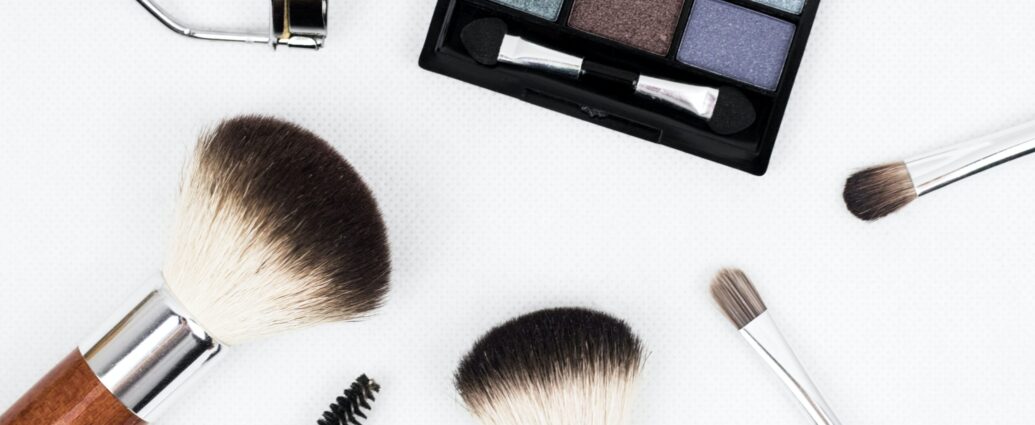Alice Baldan
In a society with such high beauty standards, we constantly find ourselves buying new cosmetic products to cover up our so-called “imperfections”. – but at what cost?
Every year, millions of animals across the world are subjected to unnecessary cruel and painful tests just to bring a new eye shadow or anti-ageing cream to our shelves.
According to Cruelty Free International, animal testing includes “any scientific experiment or test in which a live animal is forced to undergo something that is likely to cause them pain, suffering, distress or lasting harm.”
Such testing is done to assess the safety and effectiveness of products like shampoo, hair dye, creams, and other makeup.
The Hard Truth
The most common procedures of animal testing are:
- Forced chemical exposure in toxicity testing, including oral force-feeding, forced inhalation, and injection into the skin or the abdomen
- Exposure to drugs, chemicals, or infectious diseases at levels that cause illness, pain and distress, or death
- Food and water deprivation
- Behavioural experiments designed to cause distress, such as electric shock
Several cosmetics companies engage in these practices every day. It is estimated that worldwide more than 12 million animals suffer and die each year for the sake of our cosmetic purchases. But, there has been progress made to end the animal testing which happens in the beauty industry.
“It is hard to believe that using animals is the only way of testing cosmetics.”
44 countries have passed laws that ban animal testing for cosmetic products, since 2013. This includes EU countries, Australia, South Korea, India, Brazil, and more. 10 US states have also joined the ranks, such as New York, Virginia, California, Louisiana, New Jersey, Maine, Hawaii, Nevada, Illinois, and Maryland. Canada has also recently passed the ban.
Despite this, a survey among the 50 largest cosmetic brands in the world revealed that 44 of them still test on animals.
Is Animal Testing The Only Way?
Any beauty brand that tests on animals will argue that it is the most efficient way of assessing the safety and effectiveness of products for humans, and is necessary.
However, this has been proven wrong by various studies that found animal testing is only effective 40% to 60% of the time, while other alternatives have an efficiency of 80%.
Considering the technology we have developed and the extensive progress scientists make every day, it is hard to believe that using animals is the only way to test cosmetics.
Here are just a few examples of the alternatives developed throughout the years:
- In Vitro testing: This method uses human cell and tissue-based models grown in laboratory dishes to culture human cells and test substances.
- In Silico testing: Using existing information on substances, computer-based models predict which products will be harmful. Skin and eye models forecast the toxicity of makeup, while respiratory-system models test perfumes.
- Read-Across Structure Activity Relationships (RASAR): Similar to the above, this method uses a system, showing relationships between molecular structures and the toxicity levels on the eyes and skin through a database of around 10,000 toxic chemicals.
- Research with Human Volunteers: ‘Microdosing’ allows us to test the potential effects of a substance on a human by applying doses of a drug that are high enough to cause effects in the cells but not high enough to affect the entire body.
Why Should We Choose Cruelty-Free Cosmetics?
Despite the obvious suffering inflicted on innocent animals for our own benefit, there are further various reasons why choosing a vegan product is a better option.
First, they contain less harsh chemicals. Many animal-tested products use harsh chemicals that are toxic to animals. These are also likely to cause irritations or reactions for people with sensitive skin.
Vegan beauty products are often made using natural ingredients or use less synthetic chemicals and are therefore healthier for your skin and the planet.
“While some notable labels do still test, there are many alternative brands that are anti-animal testing.”
They also don’t promote deforestation. Animal-testing companies tend to use animal-derived ingredients. Not only is this unethical, but it also encourages the cutting of trees to make room for animal grazing fields.
Last but not least, cruel-free products encourage ethical consumption. By buying from beauty companies that test on animals, we are feeding into the cruelty and evilness of the industry.
Switching to cruelty-free products can stop the mass production of those that aren’t, and can inspire others to do the same!
Beauty Brands That Don’t Test On Animals
While some notable labels do still test, there are many alternative brands that are anti-animal testing. Here’s a list of some cruelty-free cosmetic brands:
- Milani Cosmetics
- Tarte
- Lush
- Wet n Wild
- Flower Beauty
- NYX
- BLK/OPL
- Hourglass Cosmetics
- Covergirl
- Herbivore Botanicals
- e.l.f.
- Tower 28 Beauty
- Ilia
Make It Your Choice
Although it’s true that humans often benefit from successful animal research, the suffering, and deaths of millions of animals cannot possibly be worth it. Ultimately, ending the cruelty surrounding animal testing is in our hands.
We know that cruelty-free options exist, and it is up to us to pick them over the ones that aren’t, sending a powerful message to the companies that still test on innocent and sensitive animals. Silence is compliance. What are you going to choose?
READ NEXT:
-
NAVIGATING CONVERSATIONS ON COSMETIC PROCEDURES
-
8 TIPS FOR A CLIMATE-CONSCIOUS SUMMER
-
HOW TO BUILD A LIFE: ONE BRICK AT A TIME
Featured image courtesy of Alex Kinkate on Pexels. No changes were made to this image. Image license found here.

